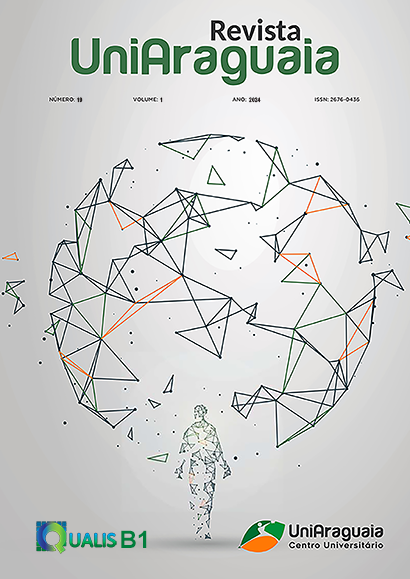PSICOMOTRICIDADE: UM ESTUDO SOBRE AÇÃO DE BRINCAR ATRAVÉS DO LÚDICO
Palavras-chave:
Psicomotricidade, Brincadeiras, Educação Infantil.Resumo
Este artigo científico foi desenvolvido por meio de fontes bibliográficas e pesquisa de campo, buscando entender como os autores tratam da Psicomotricidade, dos jogos e das brincadeiras através do lúdico. Os principais autores que referenciaram a pesquisa foram: Kishimoto (2003), Fonseca (2008, 2010), Almeida (2014), Falcão e Barreto (2009), Machado (2014), Lemos (2010), Santos e Costa (2015), Oliveira (2010), Velasco (1996), entre outros. Foi realizada uma entrevista semiestrutura com uma professora da Educação Infantil, que relata que as atividades psicomotoras, quando trabalhadas em sala de aula, auxiliam no processo de ensino e aprendizagem. Buscamos apresentar aqui a relação entre a psicomotricidade eas brincadeiras através do lúdico na Educação Infantil. Por meio do brincar, a criança explora seu mundo e, por meio da relação com o seu corpo, interage com o outro, tornando-se uma criança afetiva e despertando o seu lado imaginário. A ludicidade traz um novo contexto, uma nova forma de aprendizagem, novas experiências.
Downloads
Publicado
Edição
Seção
Licença
Copyright (c) 2024 REVISTA UNIARAGUAIA

Este trabalho está licenciado sob uma licença Creative Commons Attribution 4.0 International License.
O autor pode ainda, imprimir e distribuir cópias do seu artigo, desde que mencione que os direitos pertencem a REVISTA UNIARAGUAIA.
Os direitos de autor incluem o direito de reproduzir na íntegra ou em parte por qualquer meio, distribuir o referido artigo, incluindo figuras e fotografias.
Ao submeterem originais à REVISTA UNIARAGUAIA, o(a) autor(a) ou autores manifestam concordância com os seguintes termos:
a) Autores mantém os direitos autorais e concedem à REVISTA UNIARAGUAIA o direito de primeira publicação, com o trabalho simultaneamente licenciado sob aLicença Creative Commons Attributionque permite o compartilhamento do trabalho com reconhecimento da autoria e publicação inicial nesta revista.
b) Autores têm autorização para assumir contratos adicionais separadamente, para distribuição não-exclusiva da versão do trabalho publicada nesta revista (ex.: publicar em repositório institucional ou como capítulo de livro), com reconhecimento de autoria e publicação inicial nesta revista.
c) Autores têm permissão e são estimulados a publicar e distribuir seu trabalho online (ex.: em repositórios institucionais ou na sua página pessoal) a qualquer ponto antes ou durante o processo editorial, já que isso pode gerar alterações produtivas, bem como aumentar o impacto e a citação do trabalho publicado

